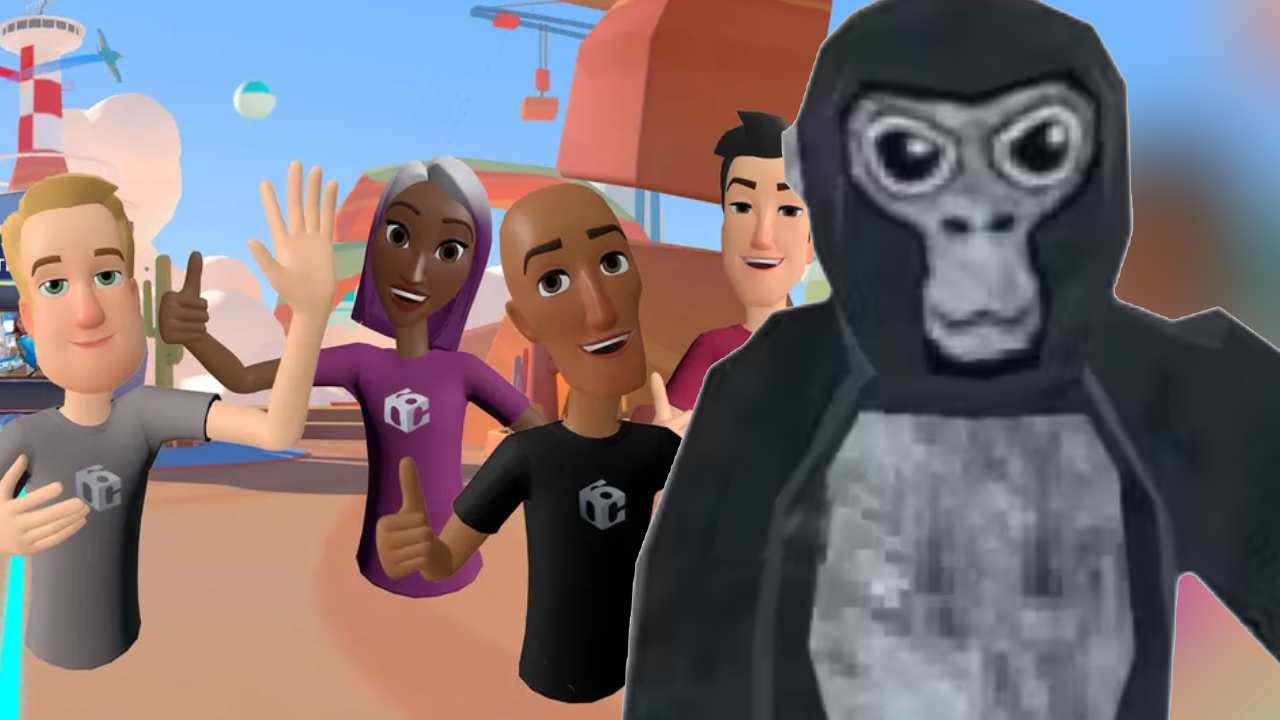Making games for virtual reality is not easy. Not only are the majority of VR game announcements chastised by the non-VR crowd, but visibility for virtual reality games is at an all-time low. Speaking to FRVR, Saints Row designer Chris Stockman, who recently released the free-to-play VR racing game Super RC, explains that it’s extremely difficult to get your game seen by VR gamers.
Over the past decade, Stockman has worked on a number of VR titles, including the popular Ultrawings and Ultrawings 2 over at Bit Planet Games. While the developer saw the rise of the Meta Quest platform as a bastion for standalone VR, Meta’s push for its own Horizon Worlds experiences over developer-created games has pushed real games out of view for many users.
Nowadays, booting up a Meta Quest headset doesn’t push users towards the Meta Store. Instead, players are greeted to a huge pop up of various Horizon Worlds options including rip-offs of Marvel or Godzilla, a Blumhouse VR experience and other quickly cobbled-together Roblox-like experiences that are designed to instantly hook in a younger crowd into one of Meta’s own projects.
“It gets me really riled up,” Stockman said. “I’ll try not to become too emotional about it. Let’s just put it this way: you have to advertise on TikTok and you have to hope you go viral, that’s the only way [to get seen]. That’s it. And you have to appeal to 10 to 15 year olds.”
Stockman has seen this first-hand. On release, despite being free, Super RC did not take off. The low visibility of Meta Quest games in general and the older-skewered nature of RC cars meant that the game’s launch was not great. But one TikTok that cracked a million views brought a flood of users into the game, more so than any official trailer or announcement ever did.
Stockman explained that the “VR industry is what it is because its been taken over by free content”, explaining that platforms like Meta Quest “have turned into the App Store without the userbase of the App Store… It wasn’t always that way, and it’s so sad.”
The focus on free games and quickly churned out “metaverse” experiences like Horizon Worlds is “a big, big, big reason for why VR is now almost a red-headed stepchild of the industry, and why so many gamers look down upon and say, ‘please don’t make a VR game of this, please don’t make a VR game of that.’ [It’s] because of that, because it’s got a stigma of it’s only populated by low-quality, low-budget slop fests.”
“I think it’s been a combination of a variety of things that have sort of tainted the reputation of VR.”
Chris Stockman on the struggles of developing for VR in 2025
Like Stockman says, VR wasn’t always so looked down upon, and it’s not really due to the price barrier. After all, a Meta Quest 3 is surprisingly affordable nowadays, if you wish to enter that ecosystem, but the vast majority of gamers now look down upon a VR release whereas just 10 years ago it used to be a selling point.
“It didn’t use to be that, right?” Stockman said. “You look back nine years ago, ten years ago, Kickstarters that were going on… Do you remember The Long Dark? This is one example I like to bring up: [The] Long Dark, in order to get that thing over [its budget], and Star Citizen, too, they promised VR, right? It used to be almost a badge of honour or a selling point [that] you have VR, and I think it’s been a combination of a variety of things that have sort of tainted the reputation of VR.”
“I don’t think Gorilla Tag helped,” the designer said, pointing to the types of experiences that are now the most popular games available on the platform. These free—or uber-cheap—games are endlessly accessible, but they’re filled with screaming children—most of whom have language that would make 2006 CoD lobbies blush—that just turn the majority of adult gamers away. And adult gamers are the ones with money.
“The market has been steered or been guided or has just naturally evolved into kids, and adults don’t wanna play with kids. That’s kind of the nature of it. And they’re toxic, they’re toxic, in the sense that you hear the N-Word coming out of their mouth, right? And you’re like, ‘where are their parents? What’s going on? Are the parents just leaving them to their VR devices as virtual babysitters. Where’s the parental factor in this?’ It’s bizarre, right, and it makes it un-fun.”
There are hundreds of millions of VR headsets out there, but very few games actually sell as well as you’d hope. Outside of major exclusives like Batman: Arkham Shadow—which has a sequel on the way—most VR developers are pushed to support every available platform just to make a mark, or even forced to make a non-VR version at some point as well, and that’s a lot of work.
The answer is clear: Meta needs to support developers instead of itself. But with Horizon Worlds bizarrely being one of the biggest money sinks in tech history, will Meta ever pull the spotlight away from itself to support the teams creating experiences people actually want to play?






